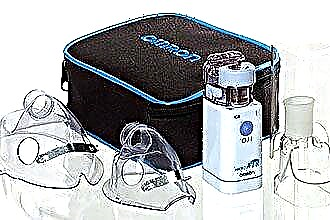In common people, a cold is a respiratory disease characterized by damage to the mucous membrane of the nose and throat. As a rule, a runny nose and headache without fever signal the development of pathogenic viruses in the respiratory tract. Their waste products poison the body, as a result of which symptoms of intoxication appear - malaise, muscle weakness, drowsiness, body aches, headache, etc.
Inflammatory processes in the airways stimulate the secretion of nasal mucus, which contains protective cells. In other words, a runny nose is a protective reaction of the body that occurs in response to the negative effects of infectious agents. Modern medicine offers a lot of nasal and anti-inflammatory drugs, with the help of which it is possible to stop the unpleasant manifestations of viral respiratory diseases.
Causes of the disease
 The common cold is a common disease that is triggered by disease-causing viruses. Without delving into the jungle of terminology, it can be noted that in most cases, inflammation in the nasopharynx is caused by microbes called rhinoviruses. Reproducing in the mucous membranes, they lead to inflammation of the soft tissues and, as a result, excessive secretion of nasal mucus. In this regard, rhinitis, nasopharyngitis, frontal sinusitis, sinusitis, etc. develop.
The common cold is a common disease that is triggered by disease-causing viruses. Without delving into the jungle of terminology, it can be noted that in most cases, inflammation in the nasopharynx is caused by microbes called rhinoviruses. Reproducing in the mucous membranes, they lead to inflammation of the soft tissues and, as a result, excessive secretion of nasal mucus. In this regard, rhinitis, nasopharyngitis, frontal sinusitis, sinusitis, etc. develop.
Most often, colds are diagnosed in the cold season. As a rule, this is due to local hypothermia of the nasopharynx and, as a result, a decrease in immunity. Due to the strong narrowing of the blood vessels in the nose, the amount of secreted mucus decreases, which is "used" by pathogenic viruses. Their active reproduction leads to inflammation of the mucous membrane and the appearance of pathological symptoms - a runny nose, headache, malaise, sore throat, etc.
There are also unfavorable factors that provoke the development of a cold:
- psycho-emotional overstrain;
- injury to the mucous membranes of the nose and throat;
- dysbiosis and hypovitaminosis;
- exacerbation of chronic diseases;
- abuse of antibacterial agents.
- disturbances in the work of the endocrine system.
Untimely treatment of colds is fraught with the development of bacterial activity and purulent processes in the respiratory organs.
People are quite frivolous about diseases without fever, which is fundamentally wrong. In this regard, many of them suffer colds "on their feet", and this threatens the development of serious complications.
General recommendations
What to do if there is a runny nose, a headache, but no temperature? When symptoms of the disease appear, you need to take care of strengthening the immune defense and stimulating the body's reserve forces. To get sick less and get better as soon as possible, it is recommended:
- ventilate the room at least 2 times a day;
- Wipe dust off horizontal surfaces once a day;
- observe semi-bed rest for 5 days;
- take vitamins and immunostimulating drugs;
- limit contact with others for the entire period of treatment.
Treatment of respiratory, in particular viral, diseases is recommended using folk remedies. Nasal congestion and rhinitis are caused by severe swelling of the nasopharyngeal mucosa. To speed up the outflow of lymph from the affected tissues, you need to make a foot bath with the addition of mustard (no more than 2 tablespoons per 5 liters of water). After steaming your legs for 10-15 minutes, it is advisable to put on warm socks and get under a warm blanket. Thus, hypothermia and deterioration of health will be avoided.
Eliminate the symptoms of intoxication, i.e. headaches, body aches and drowsiness, plenty of warm drinks will help. Tea with raspberries, thyme and ginger will speed up the elimination of toxic substances from the body, which will contribute to recovery. In addition, it is recommended to drink alkaline drink - still mineral water. It will lower the level of acids in the laryngopharyngeal mucosa and create unfavorable conditions for the multiplication of viruses and microbes. Decoctions of lemon balm, sage, St. John's wort and rose hips also have a pronounced soothing and anti-inflammatory effect.
Nasal drops
How to quickly cure rhinitis? You need to understand that a runny nose is a consequence of the development of an infection in the respiratory system. You can get rid of an unpleasant symptom by taking antiviral agents such as Arbidol, Kagocel, Aflubin, Anaferon, Viferon, etc.
It is also possible to facilitate nasal breathing and prevent hypersecretion of mucus in the nose with the help of nasal means. Vasoconstrictor drops and sprays are aimed at reducing swelling, hormonal - to eliminate inflammation, immunostimulating - to increase local immunity, and oil - to soften the mucous membrane and eliminate irritation in the nasal passages.
Some of the most effective nasal remedies that can help relieve a bad cold include:
| Types of nasal products | Drug names | pharmachologic effect |
|---|---|---|
| vasoconstrictor | Pharmazolin; "Naphtizin"; "Nazivin" | stimulate vasoconstriction in the mucous membrane and reduce swelling in the nasal passages |
| moisturizing | Delufen; Aqua Maris; Humer | eliminate irritation, thin the mucus in the nasopharynx and promote its evacuation |
| antiallergic | Nazaval; Iifiral; "Alerji" | reduce swelling and burning in the nasopharynx, facilitate nasal breathing |
| antiviral | "Grippferon"; IRS-19; Derinat | destroy rhinoviruses and help restore the integrity of the mucous membrane |
| antimicrobial | "Bioparox"; Octenisept; "Polydexa" | inhibit the development of microbes in the nasopharynx, eliminate purulent inflammation in the nose |
| homeopathic | Larinol; Rinitol; "Asinis" | stimulate local immunity and prevent viruses from penetrating deep into soft tissues |
| oil | "Eucasept"; "Pinosol"; "Sinusan" | soothe irritated mucous membranes and prevent it from drying out |
| with herbal extracts | Sinuforte; "Phitoricide"; "Mentoclar" | normalize metabolic processes in tissues and accelerate their regeneration |
 It is useless to use antibacterial nasal drops if the respiratory illness has been triggered by viruses.
It is useless to use antibacterial nasal drops if the respiratory illness has been triggered by viruses.
Local and systemic antimicrobial drugs are recommended to be used only if it is known for certain that the disease was caused by microbes - staphylococci, streptococci, Haemophilus influenzae, etc. It should be understood that antibiotics do not affect the activity of viruses and therefore it is practically useless to treat viral diseases with their help. At the same time, an irrational intake of antimicrobial agents can provoke a decrease in local immunity and, as a result, the development of post-infectious complications.
Rinsing the nose
Rinsing the nose is an unpleasant procedure, but very effective. Systematic irrigation of the nasal mucosa with antiseptic and anti-inflammatory solutions helps to stop a severe runny nose and significantly improve well-being. Modern medicine offers at least 50 different types of drugs suitable for the sanitation of the nasal cavity. The most effective solutions include those that contain sea salt and herbal extracts.
Nasal lavage helps to thin and remove mucus from the nasal passages, to heal the mucous membrane and to destroy more than 70% of pathogenic agents. With a regular procedure, it is possible to eliminate the manifestations of rhinitis within 2 days.Sanitation can be carried out in the treatment of allergic, infectious, chronic and vasomotor rhinitis. The most effective remedies include:
- Aqualor Extra;
- Morenazal;
- "Quicks";
- Aqua Maris Strong;
- Otrivin More;
- Physimer.
Hypertonic solutions (Aqualor Extra, Aqua Maris Strong) can be used no more than 3 times a day, as they dry out the nasal mucosa.
With severe congestion, it will not be possible to effectively rinse the nose. To achieve the desired results, before using saline solutions, you need to clear the nose of mucus and drip vasoconstrictor drops. And only after that, sanitizing procedures can be carried out, preheating the drug to a comfortable temperature.



